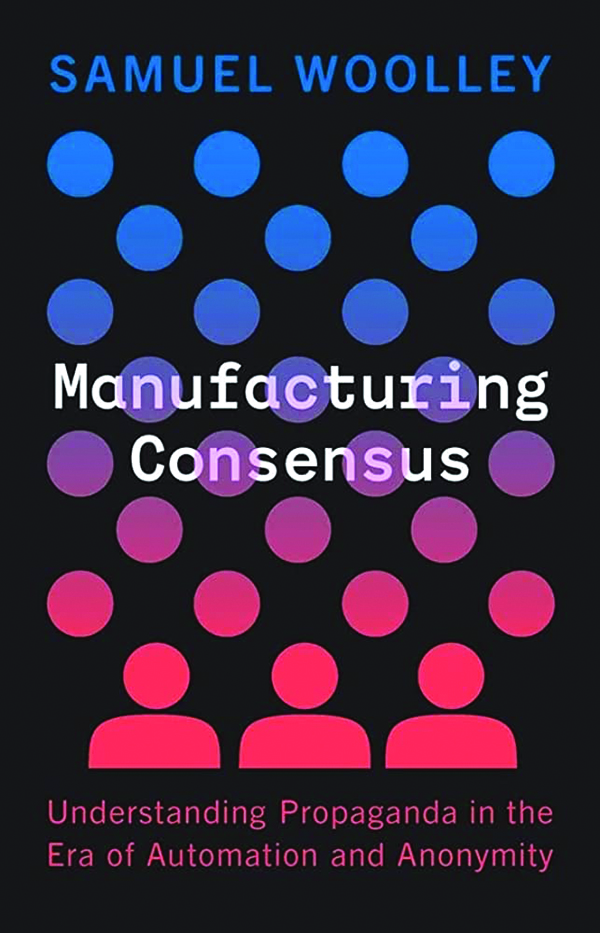
A guide for Goliath on how to defeat David
Jack Baruth
It is a truth universally acknowledged that a regime in possession of nearly limitless power must be in want of a useful enemy. In fact, it usually needs two: one foreign — let’s call this one “Eurasia,” shall we? — and one domestic, which we can call “Emmanuel Goldstein” for now. The reason is obvious: Without enemies, you have no justification for emergency powers, extraordinary measures, suppression of dissent, and all the other things that make the aforementioned power fun, as opposed to responsible and constant drudgery. The presence of enemies also helps energize the troops and keep their destructive energies focused outward, where they can do no harm to you.

The powers that be in America today are no exception to the above rule, of course, but the task is made harder by the sheer breadth of the coalition that claims to have recently saved “our democracy.” It contains, at an absolute minimum, the best-funded political party, the wealthiest donors, the largest corporations, the most populous and expensive states, the banks, the schools, the unions, the street protesters, all the tech giants, every bit of Hollywood, nearly every resident of the only cities that seem to matter to anyone, plus the iceberg bulk of the media.
This nearly all-powerful group still needs enemies, if it is to retain power, but that considerable puissance is, in this case, a liability because it crushes the “bad guys” faster than they can spring up from the ground. What’s required here is an opponent that is strong enough to justify the expansion of state power while also being nebulous enough not to be easily targeted and crushed by that power. In his new book, Manufacturing Consensus, Samuel Woolley takes a shot at defining just such a useful enemy.
Produced with the aid and funding of entities ranging from the Ford Foundation and George Soros’s Open Society Foundations to Google and the Anti-Defamation League, Manufacturing Consensus purports to tell the story of shadowy figures who manipulate public opinion through the use of “bots,” or programs that impersonate human beings on social media. Woolley wears his affiliations on his sleeve; well before the reader meets any of the “botmakers,” he is forced to trudge through an extended set of musings on “Russian hackers,” “disinformation,” the “alt-right,” and a complaint that “the propaganda that I describe here is necessarily illiberal, always nefarious.”
The book’s title is a nod to Manufacturing Consent, a groundbreaking 1988 book by Edward Herman and Noam Chomsky that identified “five filters” of media bias. Doing that is like a high schooler writing a new play and titling it Hamlet II. Expectations are sky-high by default. Sadly, the analogies do not end there. Manufacturing Consensus is 176 pages long. The first 65 pages are brimming with statements of “In this book, I will demonstrate that …” and the last 20 pages are equally full of statements that “I have argued here that …” in a manner that will be eerily familiar to anyone who was ever 14 years old and tasked with writing a whole 500 words on a given topic. There’s not a lot of meat between these two buns, and most of what there is verges on rancid.
Woolley never marshals much in the way of his data to support his 85 pages of portent and self-congratulation. Instead, we get a few tepid and directionless tales of dark-web magicians who are identified only by generic first names and who are suspiciously eager to tell all their secrets to someone who clearly despises them, seasoned thoroughly with astoundingly unself-conscious statements such as “Unrestricted free speech, in practice, is usually explicitly racist, Islamophobic, and antisemitic.” The bias occasionally verges on parody. In one section, the reader is bombarded with paragraph after paragraph about the high percentage of former President Donald Trump’s Twitter following that can be ascribed to “bots.” This repetitious tirade about “astroturfing” and manipulation just happens to end with a single sentence casually noting that Hillary Clinton had a “similar” percentage of bots among her followers. Oops.
Woolley has an action plan, naturally: Section 230 of the Communications Decency Act must be changed to hold social media accountable for racist content. Other countries must work hand-in-glove with the United States to restrict racist content on social media globally. WhatsApp and other programs that provide “end-to-end” encryption preventing anyone but the sender and recipient from reading the message must be forced to remove that encryption on a selective basis, so approved “activists” in enemy countries are safe from government intervention but Western dissidents can be “held accountable.” Free speech must be regulated, of course, but in a way that protects the free speech of which Woolley approves while ensuring “accountability” for people whose free speech is undesirable to those in power here.
(The triple appearance of “accountable” above is not accidental. Woolley, much like the folks at the ADL and the Open Society Foundations, is obsessed with the idea of holding his chosen enemies to account.)
As a morally bankrupt and artistically inept paean to the preservation of the existing power structure, Manufacturing Consensus is right up there with the dystopian “Humans of Flat” illustration style so common in corporate communications nowadays, in which crudely drawn, two-dimensional, cartoonish “bodies in spaces” pantomime socially acceptable acts of consumption and pseudoactivism. Yet it is not entirely without value because at least some of its readers are likely to pick up the original Chomsky book and read that.
If they do, they will see extensive, if mirrored, parallels between the Reagan-era society described in Manufacturing Consent and what we have today. Most of the “filters” on the public’s ability to perceive described by Chomsky are still at work. “The advertising license to do business,” in which only content acceptable to modern and socially progressive companies is considered to be newsworthy, and “Flak and the enforcers,” a mechanism by which media are bullied out of reporting objective news by well-funded pressure groups and organized entities (such as, for example, the folks who funded the writing of Woolley’s book), are more powerful than ever before.
Chomsky also notes in his book that the cost of acquiring news is always high and that therefore it is always tempting to rely on official sources, or sibling entities, for the news; that’s the third of his five filters. The fifth filter, “Anti-communism,” in which all content must serve the political objectives of President Ronald Reagan’s America to some extent, was redefined as “War On Terror” by Chomsky in 2002. Given his recent criticism regarding the strengthening of NATO, perhaps he will redefine it again in the future as “Anti-Russia.” The point, anyway, is that being anti-something foreign and evil, rightly or wrongly designated, is a central organizing principle of the way political power legitimates itself in the culture.
You can see these filters in simultaneous operation during recent coverage of Elon Musk, for example. There was a massive, and lovingly detailed in the media, exodus of advertisers when Musk bought Twitter because they were concerned about “free speech” on the platform. Musk was subjected to endless “flak” about his personal life, his father’s background, his business dealings, and even his SpaceX rockets. Between Oct. 11 and 17 of last year, the legacy media published dozens of articles regarding Musk’s supposed ties to Russian President Vladimir Putin in outlets from the BBC to Politico to Rolling Stone. Many of these articles appeared to have been written from a common but unknown outline. Those that were published later in the week often heavily relied on previous articles rather than original sources. By Nov. 2, Business Insider was calling him “Putin’s Useful Idiot.”
This combined assault, obviously precipitated by the Twitter deal, has an ironic commonality with Manufacturing Consensus: Both of them are designed to preserve the first of Chomsky’s filters, namely “Size, ownership, and profit orientation of media,” by portraying social media as dangerous and reactionary. One in five Americans relies on Twitter as a primary news source, and this is unacceptable to the monopoly power of established outlets such as the ones gleefully attacking Musk.
It is a particularly unpleasant characteristic of the current regime that, unlike the one that gave us Reagan or Tip O’Neill, it insists on seeing all opposition as the result of racism, low intelligence, or “disinformation.” Woolley’s book was written and published in explicit service of this myopia by portraying “illiberal and nefarious” disagreement with President Joe Biden and PepsiCo as not a sign of a healthy democracy but rather the work of furtive, Russian-affiliated manipulators who use what the author calls “firehoses of falsehood” to deceive people who otherwise would naturally support whatever our self-appointed elites want. “We need firehoses of our own,” he notes. One suspects that he would be perfectly fine if those firehoses were to be literal and not metaphorical. After all, truth is a virtue, and extremism in the defense of virtue is no vice — and that’s doubly true when you are at liberty to define that truth.
Jack Baruth was born in Brooklyn, New York, and lives in Ohio. He is a pro-am race car driver and a former columnist for Road and Track and Hagerty magazines who writes the Avoidable Contact Forever newsletter.
